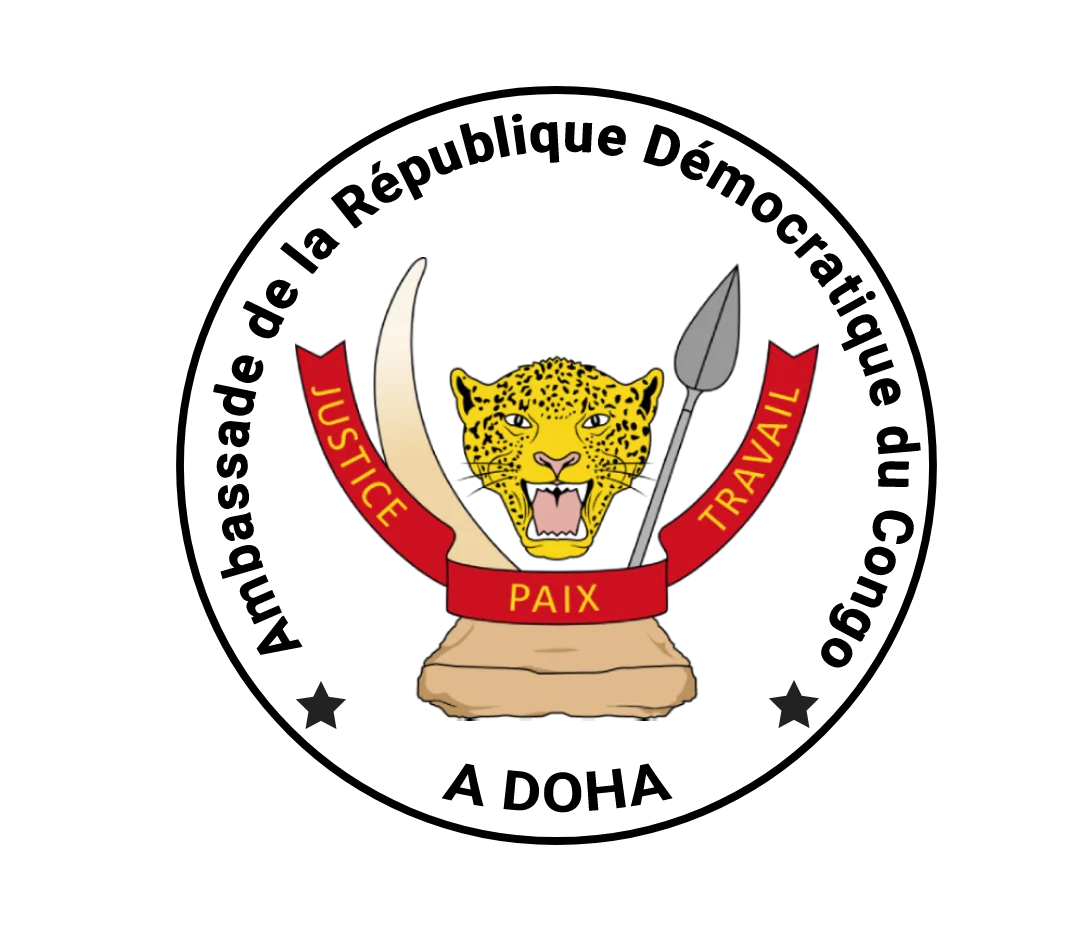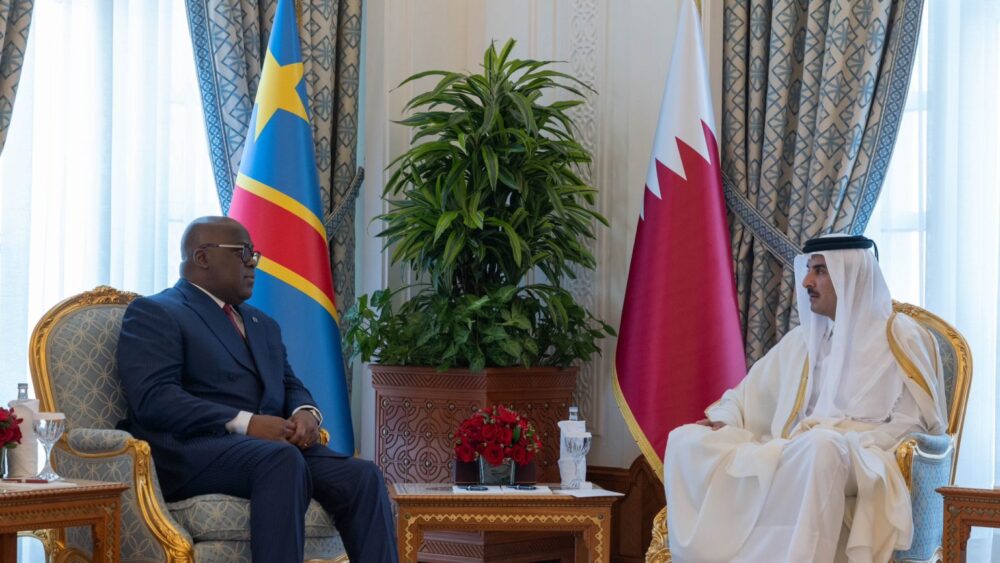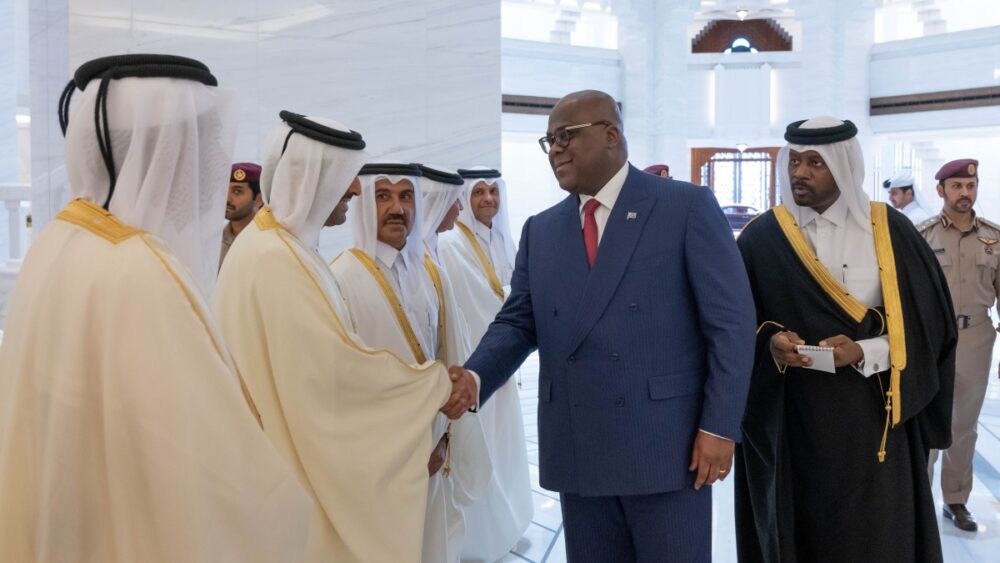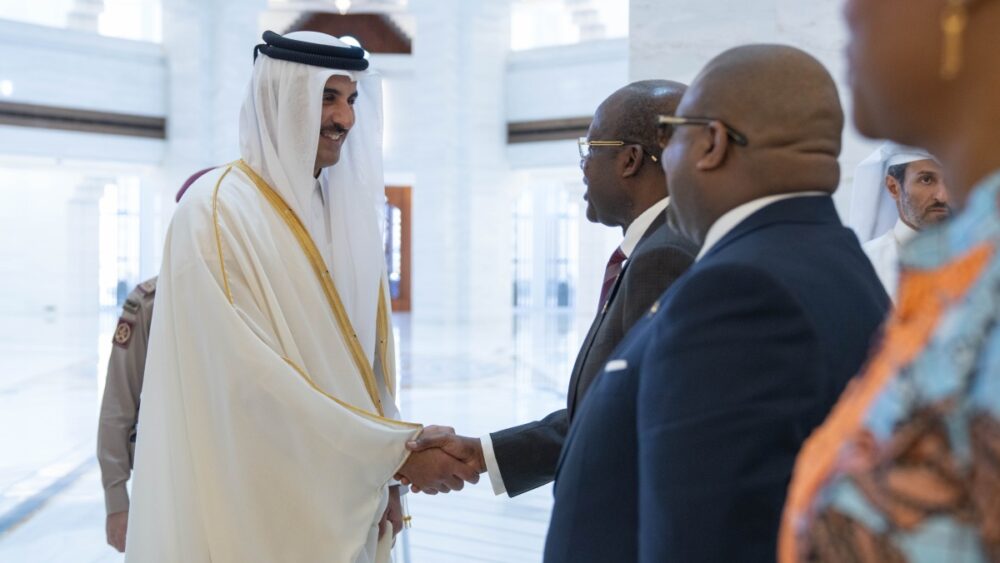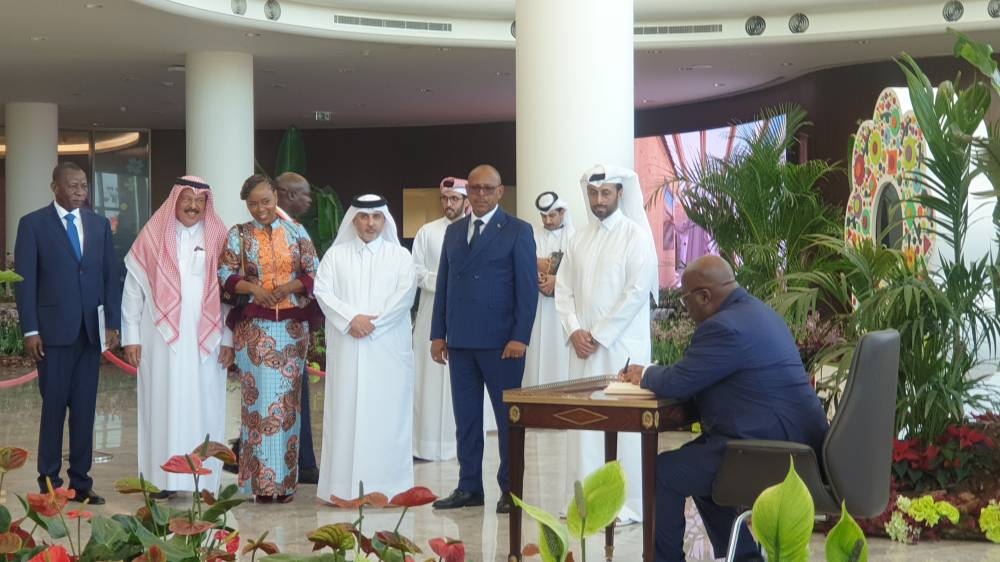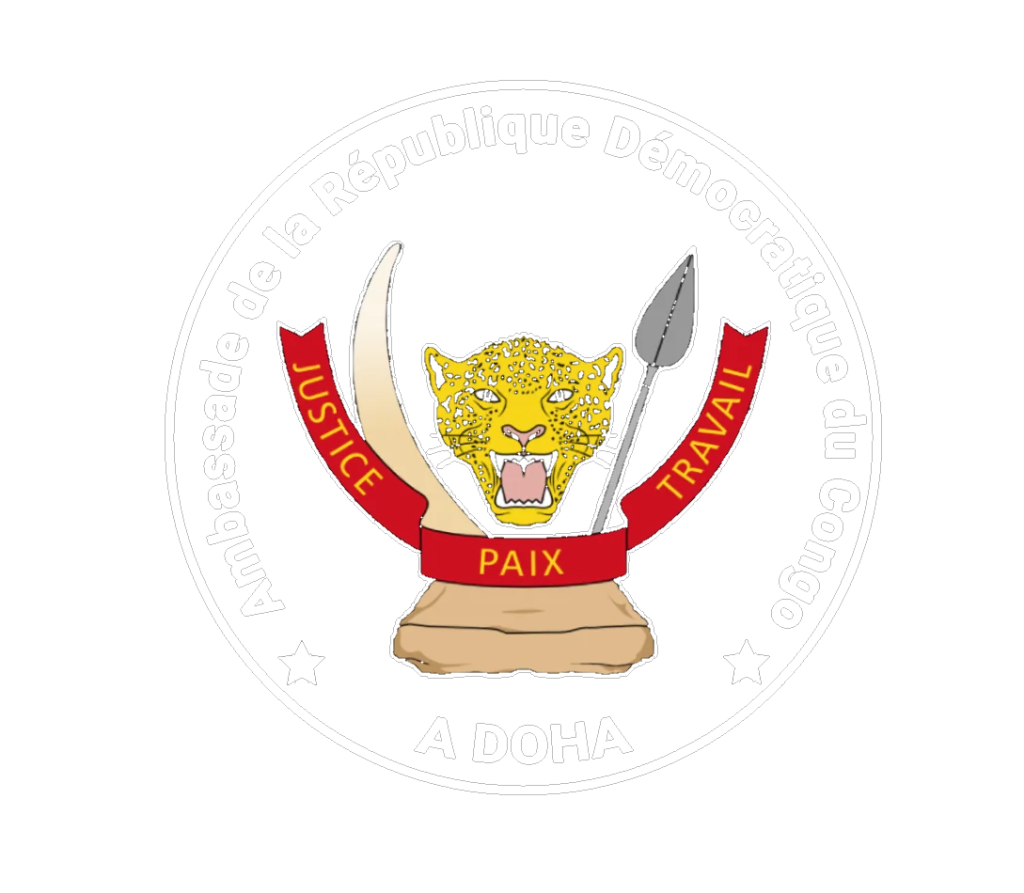In January 2023, Qatar attempted to host peace talks between DRC and Rwanda in hopes of getting both sides to return to the Luanda Agreement.
Qatar’s Amir Sheikh Tamim bin Hamad Al-Thani and President of the Democratic Republic of Congo Felix Tshisekedi held official talks at the Amiri Diwan in Doha on Tuesday, state news agency (QNA) reported.
The talks between the two leaders dealt with strengthening Doha and Kinshasa’s ties “in various cooperation fields, particularly investment and economy,” QNA reported.
Sheikh Tamim and President Tshisekedi also discussed regional and international issues, including the ongoing Israeli war in Gaza, where Qatar is playing a central mediating role in hopes of reaching a ceasefire.
The meeting comes as the eastern side of DRC continues to be mired in one of the world’s deadliest crises, where renewed conflict with rebels from the March 23rd Movement has raged on. There are 6.1 million internally displaced people in DRC, according to the United Nations.
The United States and DRC have long accused the M23 of being backed by Rwanda, though it repeatedly denied those claims.
In 2022, Angola mediated the Luanda Roadmap Agreement between both sides, but it was quick to collapse under the escalations between Rwanda and DRC.
In January 2023, Qatar attempted to host peace talks between the conflicting sides in an attempt to bring together representatives from Angola, Kenya and the African Union. However, reports at the time claimed that the meeting was cancelled due to a no-show by DRC’s leader.
Qatar’s foreign ministry official details new regional, international diplomatic roles
Last September, Qatar’s Foreign Ministry spokesman Majed Al-Ansari confirmed the Gulf mediator’s role in easing tensions between Rwanda and DRC.
“What we are doing right now, one of the main issues we are working on right now, is the DRC and Rwanda, you know there has been a lot of animosity there on the border areas and we are working with both sides in coordination with the Americans to make sure we can reach some kind of an agreement over there,” Al-Ansari told the Middle East Global Summit at the time.
Meanwhile, on Monday, the European Union voiced its concern over the escalating violence in eastern DRC and the worsening humanitarian situation. In a statement, the EU expressed its support for the Luanda and Nairobi peace processes of 2023, both aimed at ending the violence.
It also condemned the M23’s latest attacks in DRC, calling on Rwanda to “immediately withdraw all its military personnel from the DRC” and “to terminate all support to and cooperation with M23.”
“There is no military solution to this crisis, only a political one: this must be reached through an inclusive dialogue between DRC and Rwanda to address the root causes of conflict, aimed at implementing the decisions taken within the regional peace initiatives,” the EU said.
The ongoing instability is deeply rooted and dates back decades to the 1994 Rwandan Genocide.
At the time Hutu militias attacked Tutsis and moderate Hutus, killing at least 800,000 people within more than 100 days. The war forced millions to flee Rwanda to eastern DRC.
Two deadly wars broke out in Congo between the warring sides between the late 1990s and 2003, triggering further instability and ethnic tensions between DRC and Rwanda.
Claiming that it is fighting for the rights of Tutsis in the DRC, the M23 group launched an offensive in 2012 where they captured the city of Goma among others.
The rebels were then pushed back to the border with Rwanda in 2013 by a special UN force and the Congolese armed forces. The group returned in 2022 when it captured at least four areas in North Kivu, eastern DRC, following major attacks.
Last week, President Tshisekedi agreed to meet his Rwandan counterpart, Paul Kagame, for talks facilitated by Angola, backtracking on his refusal to meet him in January.
“No dialogue will take place with our aggressor as long as it occupies a portion of our territory,” Tshisekedi said on January 30.
